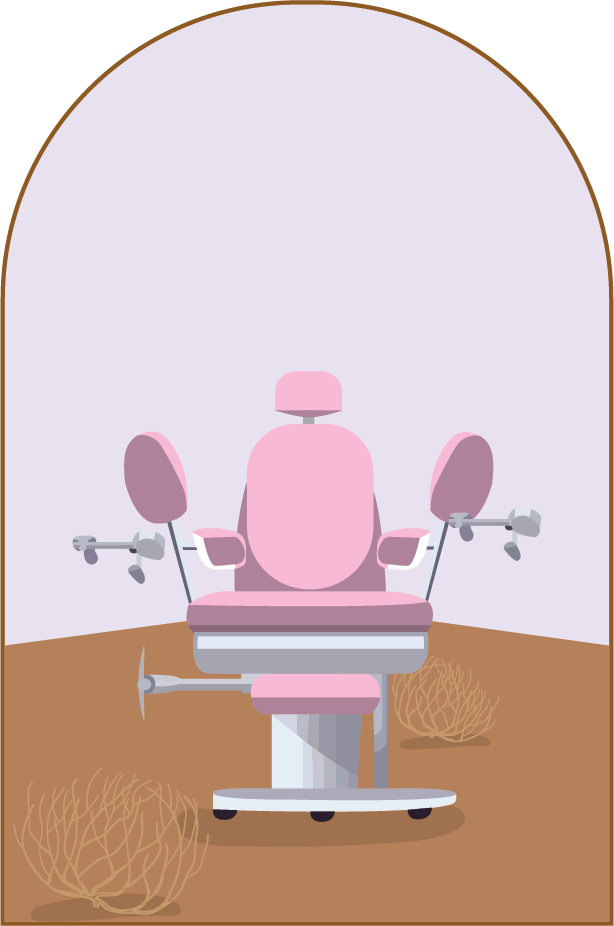In June 2022, women lost the right to their own bodies. In a single day, women felt incomparable fear as they heard the news that Roe v. Wade was overturned in a 5-4 vote. Since then, 21 states have banned abortions, with many states right behind with strict limits on abortion. Regardless of how many U.S. residents continue to claim that banning abortion is a pro-life sentiment, the Supreme Court decision is ultimately putting more women at risk of health crises.
Many cities had already fallen victim to healthcare deserts, but the overruling of Roe v. Wade overall increased the amount of women without access to reproductive healthcare. Research has shown that around 20% of counties in the U.S. are over a 30-minute drive from a hospital. This in and of itself is an appalling statistic, but becomes much more terrifying when thinking about it from the perspective of a woman in labor. Since the Supreme Court decision was made, reproductive healthcare deserts have become more prominent, therefore putting thousands of women’s lives at risk.
Almost 3% of women within the reproductive age group live in places with no abortion or maternity care access. This may seem like a small percentage, but it turns out to be almost 2 million women. This is absolutely inexcusable and could easily increase the statistic of women dying due to pregnancy complications.
There has already been research done regarding the increase of death in areas where abortion is banned; the number of deaths increases by 24%. The statistic is even higher for Black women, with an increase of 39%. If those who ruled in favor of overturning Roe v. Wade were actually concerned about saving lives, they would spend more time worrying about mothers that are ultimately dying because of their decision and less time worrying about a fetus who cannot feel pain.
Reproductive healthcare deserts are often in conjunction with contraceptive deserts; almost 20 million women live in areas where they do not have access to birth control, and a lot of these areas are in states where abortion is illegal. These millions of women have little to no jurisdiction over their bodies, something that women who live in the U.S. are far too familiar with and something some men will never understand.
Healthcare deserts are extremely dangerous for everyone who lives within one, and contraceptive healthcare deserts could easily turn out to be the straw that broke the camel’s back; in this instance, the point at which all women are in exponentially more danger.
Contraceptive methods serve more than just the purpose of catalyzing safe sex; they can lessen the risk of ovarian cancer, reduce cramps during the menstrual cycle and decrease risks of other diseases. However, it is also important to note that contraceptive methods do play a large role in safe sex.
In places where reproductive care, maternal care and contraceptive methods are severely limited, the following chain of events could easily occur: a woman becomes pregnant without wanting to, does not have access to the proper maternal care and cannot ensure she has a safe pregnancy. She then attempts to have an abortion on her own and dies, all because she lives in a location where these services are unavailable.
Over half of accidental pregnancies result in self-attempted abortions, and, in developed countries, between 4.7-13.2% of pregnant women die annually from abortions that are not performed in a safe and medical manner. These statistics are only increasing as more and more states ban abortion.
This year’s theme of Women’s History Month is “Women Who Advocate for Equity, Diversion and Inclusion.” While being a very pertinent theme, it is deeply disappointing that women are still fighting for it after all these years. It is also deeply disappointing that not all women advocate for these causes.
In the ruling to overturn Roe v. Wade, Amy Coney Barrett was the only female justice to rule in favor of overturning. The other four justices were men. On the opposing side, two women and two men voted to uphold the constitutional right of abortion. Barrett was sworn in late 2020 by Donald Trump; it should not be a shock that a justice appointed by a misogynistic bigot shares similar ideals, including taking away a woman’s right to control her own body.
The majority of the Supreme Court Justices are men, meaning it was ultimately men who took body autonomy from women. It was men who have absolutely no right to tell women what to do with their bodies and men who, quite frankly, do not truly care about the safety of a woman; they care about control.
Another example of this is the Alabama Supreme Court’s ruling from February. Their ruling said an embryo, which is no more than a clump of cells, made through in vitro fertilization, or IVF, is human. Though not shocking at all, it is still infuriating that this court is mostly men making decisions regarding the female body.
There are thousands of women who can only have children through IVF, such as those undergoing cancer treatment. It is absolutely disgusting that the Alabama Supreme Court is taking away the opportunity to have a family from women who have already lost so much. It is equally as despicable for the justices to think they have the right to do so.
With the next presidential election quickly approaching, the topic of abortion is one that should be on the forefront of people’s minds, as it is one of the main factors in the decision between Trump and Biden. Biden, the most probable Democratic candidate, has put abortion rights at the forefront of his campaign. Trump, who is also running for reelection in 2024, said he was the reason Roe v. Wade was overturned.
The pro-choice vs. pro-life argument has been around for decades and is only becoming more of a pressing issue. The bottom line is it should not be an argument; women own their bodies and should not have to listen to anyone else about what they do with them. The more people debate over the right of abortion, the clearer it becomes that the pro-life angle is simply a facade for controlling women. It is terrifying to think reproductive healthcare deserts will continue to spread throughout the U.S., depriving more and more women of concrete access to the healthcare they require.
The 2024 election could be a turning point in the U.S., for better or for worse. If you are not registered to vote, there are multiple ways to do so before the general election. Think of the women in your life: mothers, sisters, partners, daughters or anyone else important to you. Think of the life you want them to live. Is it one in which they feel safe, or is it one where they are constantly in fear of what is around the corner?



Camille • Mar 7, 2024 at 7:23 am
When does one become living?